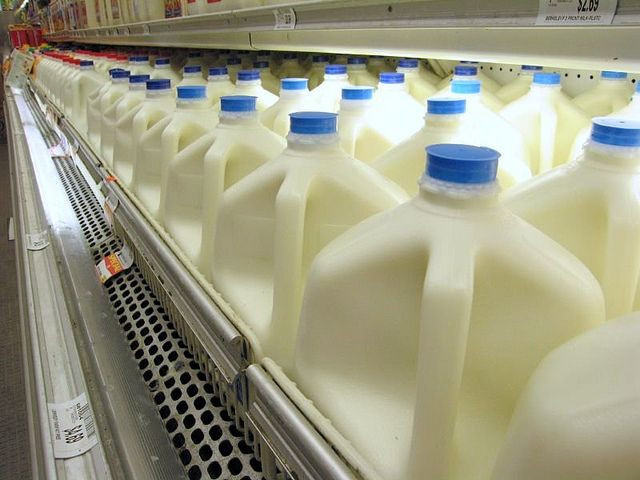Does Milk Actually Build Strong Bones? Sugar Content May Lead To Greater Fracture Risks

A recent report from Sweden has not only added proof to the growing consensus that drinking milk doesn’t help our bone strength at all but also suggested that it may be compromising our lives. The study even found a correlation between high milk consumption, bone fracture occurrences, and increased mortality risk. Although at this point cause and effect cannot yet be proven, the findings may still be enough to get you to decrease your daily milk consumption.
Mankind’s relationship with milk post-infancy is still relatively new. In fact, two-thirds of the human population still lack the enzyme needed to break down the lactose in milk and will most surely end up with the monster of all stomach aches if they drink too much. Still, for those of us who are able to drink milk without too much of a discomfort, we've drank with the idea that we were somewhat improving our bone health.
However, many scholars have noticed that when it comes to osteoporosis and milk consumption, the numbers just don’t add up. The countries with the highest rates of osteoporosis, such as the United States and countries in the European Union, are some of the biggest global milk consumers, Slate reported. Could it be that milk actually doesn’t do all that much for bone health after all?
In order to answer this question, which could potentially lead to a revision of medical books throughout the world, a team of Swedish researchers followed 61,433 women and 45,339 men for between 11 and 20 years, tracking their diet and bone health. Results showed that for women, higher milk consumption was not associated with a reduction in fracture risk. On top of this, women who drank more than three glasses of milk a day were found to have a higher risk of death than women who drank less than one glass. The men showed similar results with an even more pronounced association between high milk consumption and higher risk of death.
“Our results may question the validity of recommendations to consume high amounts of milk to prevent fragility fractures," wrote the study’s authors in a press release. "The results should, however, be interpreted cautiously given the observational design of our study. The findings merit independent replication before they can be used for dietary recommendations."
There is a bit of hope for dairy lovers, though. Although higher consumption of milk was found to be associated with negative health consequences, a high intake of fermented milk products with low lactose content, such as cheese and yogurt, was found to lower the risk of bone fracture and death. This observation was especially prominent for women.
The study was only able to point out a pattern between milk consumption and increased health consequences but emphasizes that more research is needed.
“As milk consumption may rise globally with economic development and increasing consumption of animal source foods, the role of milk and mortality needs to be established definitively now," said lead researcher Karl Michaëlsson.
Source: Michaëlsson K, Wolk Alicja, Langenskiöld S, et al. Milk intake and risk of mortality and fractures in women and men: cohort studies. BMJ. 2014.
Published by Medicaldaily.com



























